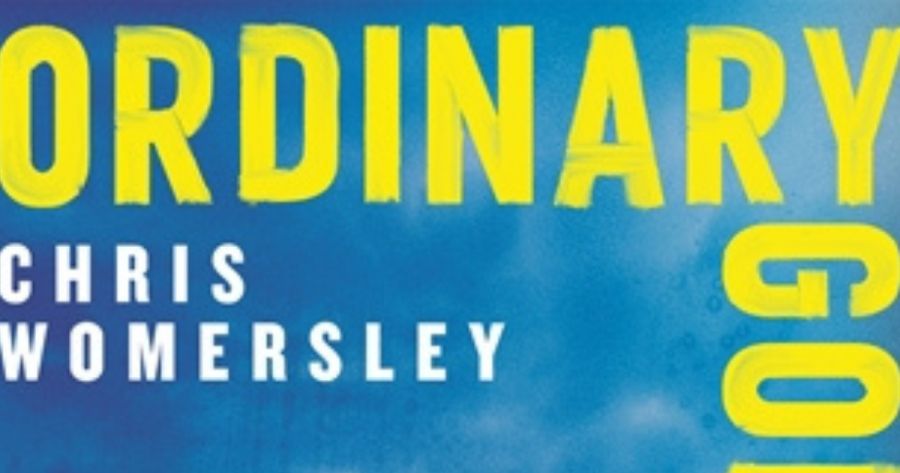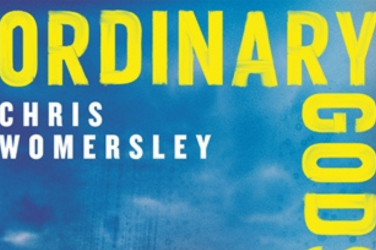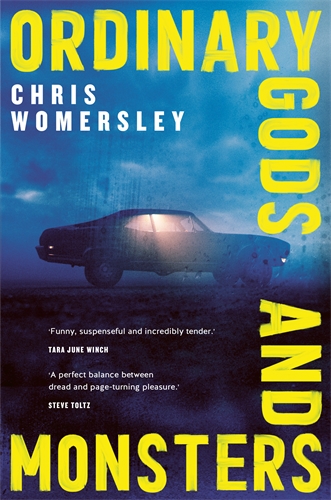
- Free Article: No
- Contents Category: Fiction
- Review Article: Yes
- Article Title: Suburbia’s crackle and hum
- Article Subtitle: Blending the sinister and domestic
- Online Only: No
- Custom Highlight Text:
In his essay on the uncanny, Sigmund Freud observed that fiction writers have an unusual privilege in setting the terms of the real, what he called a ‘peculiarly directive power’: ‘by means of the moods he can put us into, he is able to guide the current of our emotions’, and ‘often obtains a great variety of effects from the same material’.
- Featured Image (400px * 250px):

- Alt Tag (Featured Image): Jennifer Mills reviews 'Ordinary Gods and Monsters' by Chris Womersley
- Book 1 Title: Ordinary Gods and Monsters
- Book 1 Biblio: Picador, $34.95 pb, 299 pb
- Book 1 Cover Small (400 x 600):

- Book 1 Cover (800 x 1200):

The book’s other setting is the limbo between childhood and adulthood. Nick Wheatley is seventeen, awaiting his HSC results, and dwelling in the space between finishing school and deciding what to do with his life. He lives with his firm-but-kind schoolteacher mother and his obscurely mentally unwell sister Alison, who provides comic relief, even when she is self-harming. His parents are separated, and his father – unreliable, disappointing, a true Womersley fuck-up of a dad – is on and off the scene.
Nick’s masculine haplessness is lovingly drawn, from feeling ridiculous in his brother’s suit, uncertainty about dating, and general lack of life skills (he admits he ‘barely knew how to change a car tyre’).
Womersley’s fondness for his characters is infectious. He has a knack for the retrospective first-person voice’s capacity to blend insight, self-effacement, and naïveté. This perspective has its uses: our narrator, while telling a story of himself at seventeen, is also capable of observing at the beginning of the novel that ‘most of the tragedies that befall us are the result of plain old bad luck, or simpler, more human frailties: accidents, poor judgement, greed, untended desires’. It’s a theory of evil that Womersley goes on to examine more closely as the story unfolds.
The plot follows the death of Mr Perry, killed in what looks like a hit-and-run accident while out jogging. He is the father of Nick’s girl-next-door best friend/potential love interest, Marion, and the two soon band together to investigate. Looking for an explanation drags our hero into a small-time bad scene of local drug dealers, petty crims, suspicious Masons, and cover-ups. Nick visits the tip, the panelbeaters, his nan’s house with its ‘musty, comforting’ smell (‘the odour of a certain kind of old lady’), each location drawn with just enough detail to bring it to life. He finds clues to his own family’s history of instability, and freaks himself out with the occult when he uses a Ouija board to communicate with the deceased.
It is the mid-1980s, we learn from small details: Back to the Future is in the cinema; landlines crackle and hum. Touches of nostalgia appear throughout – Monte Carlo biscuits, the Holden Sandman, cicada shells, and Star Wars figurines – that will appeal to readers of a certain age, but such background details are fleeting and gestural. The action moves along at a cracking pace.
Nick is helped in his endeavours by a cast of characters who offer him advice and clues here and there – sometimes about the crime, sometimes about life in general. Local drug dealer Stretch provides comic existentialism with his take on Einstein’s paradox of ‘spooky action at a distance’, presenting an alternate theory of evil that clouds simpler logics of cause and effect.
Themes of fate and quantum entanglement add palatable spice to this suburban drama, but its pacy plotting is never slowed down by too much doubt. Womersley is typically ambivalent about the function of magic in the novel. Even when conjuring spirits, he prefers to examine the human hand that might be moving the planchette across the Ouija board. When the fantastical does appear, it’s often subtle, acting in service to the real. As the story progresses, Nick’s search for answers begins to seem innocent, the evil around him less mysterious and more domestic than he perhaps hoped.
The fizzy teenage caper is hardened with a carefully measured shot of disillusionment. As he did in Cairo (2013) and The Diplomat (2022), Womersley paints a fine portrait of a young man on the cusp of himself, facing the spectres of failure and regret. Under the plot, there’s another story about growing up and beginning to understand a few things: the flaws of your parents; your own fear of inheriting their legacies of sadness and violence; what it takes to be an adult and have adult relationships.
The savagery of Womersley’s earlier work has faded. His novels are pitched at a lower intensity these days, and the atmospheric fog that hovers over Ordinary Gods and Monsters softens the air rather than poisoning it. This mode allows for nuance and reflection, for a gentler examination of complex feeling. The crimes are beginning to shift into the margins of these understated, tender, sorrowful works.
The peculiar power of this writer is still in play, however. Womersley can’t resist giving us a tantalising glimpse of further realms, stranger explanations, wandering somewhere just out of reach. Ordinary Gods and Monsters glances at the supernatural just long enough to add flavour to closer, human mysteries. While it doesn’t break new ground, this is another solidly crafted, highly entertaining novel that handles its breadth of emotion with enviable poise.


Comments powered by CComment